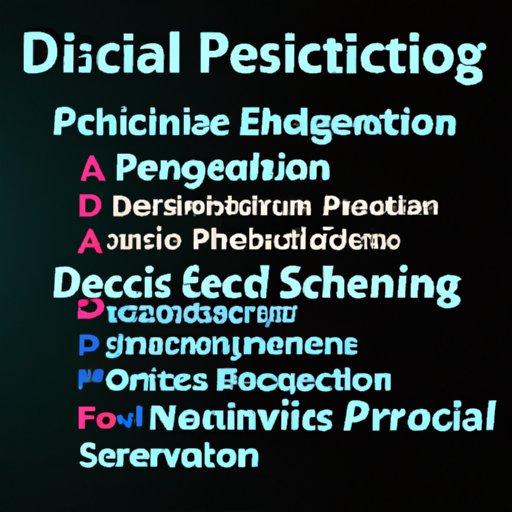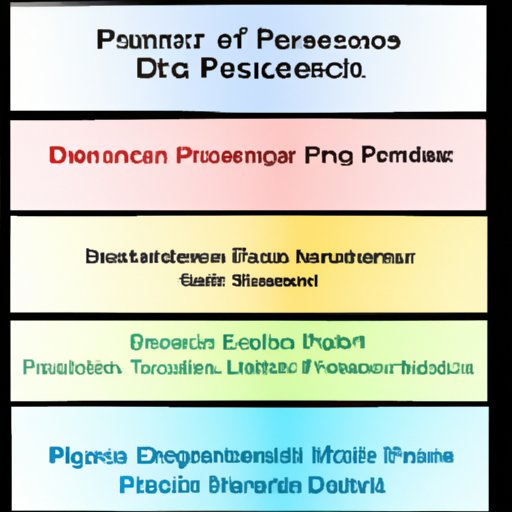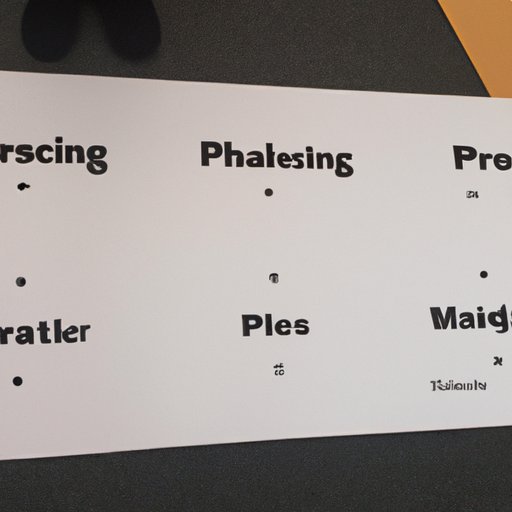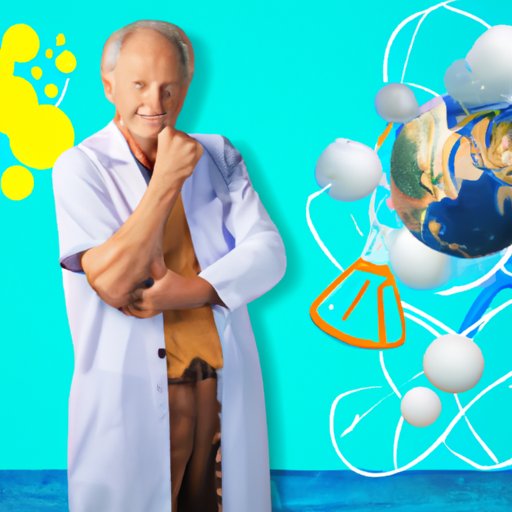Overview of a Physical Science Degree
A physical science degree is an undergraduate or graduate degree program that focuses on the scientific study of matter, energy, and their interactions. It is an interdisciplinary field that combines elements from physics, chemistry, astronomy, geology, oceanography, and meteorology to help students understand the natural world and its processes. A physical science degree provides students with a broad understanding of the physical sciences, as well as the skills needed to pursue careers in research, engineering, and other related fields.

Definition of a Physical Science Degree
A physical science degree is a college degree that focuses on the scientific study of matter, energy, and their interactions. It is an interdisciplinary field of study that combines elements from physics, chemistry, astronomy, geology, oceanography, and meteorology. Students who pursue a physical science degree gain a broader understanding of the physical sciences and develop the skills needed to pursue careers in research, engineering, and other related fields.

Types of Physical Science Degrees
Physical science degrees are available at the undergraduate and graduate levels. Undergraduate degrees typically include a Bachelor of Science in Physical Science, while graduate degrees may include a Master of Science or Doctor of Philosophy in Physical Science. Depending on the institution, some schools may offer specialized degrees such as a Bachelor of Arts in Physical Science or a Master of Arts in Physical Science.

The Benefits of Pursuing a Physical Science Degree
Pursuing a physical science degree can provide many benefits. By studying the physical sciences, students can broaden their knowledge base, improve their problem-solving skills, and gain an in-depth understanding of the physical sciences. This can open up many career opportunities for physical science graduates, ranging from research scientist to engineer to college professor.
Broaden Your Knowledge Base
Studying the physical sciences can give students a better understanding of the universe and its processes. Through courses in physics, chemistry, astronomy, geology, oceanography, and meteorology, physical science majors can gain an appreciation for the complexity and interconnectedness of the natural world. This knowledge can be applied not only to physical science careers but to other fields as well, such as medicine and law.
Improve Your Problem-Solving Skills
Physical science majors will also gain an understanding of how to use the scientific method to solve problems. Through courses in mathematics, physics, chemistry, and other physical sciences, students learn to think critically and develop problem-solving skills that can be applied to many areas of life. These skills can help physical science graduates find solutions to complex problems in their future careers.
Develop an In-depth Understanding of the Physical Sciences
Physical science majors will gain an in-depth understanding of the physical sciences and their applications. Students will learn about the principles of physics, chemistry, and other physical sciences, and how they interact with each other. This knowledge can be used to develop new products, technologies, and solutions to real-world problems.

Exploring the Different Fields of Physical Science
The field of physical science encompasses a wide range of disciplines, including physics, chemistry, astronomy, geology, oceanography, and meteorology. Each of these fields has its own unique set of theories, laws, and practices that physical science majors must learn in order to fully understand the physical sciences.
Physics
Physics is the study of matter and energy and their interactions. It deals with concepts such as force, motion, gravity, electricity, magnetism, and light. Physicists use mathematics to explain the behavior of these phenomena and develop theories and models to describe them.
Chemistry
Chemistry is the scientific study of matter and its properties. Chemists explore the structure and composition of matter, its reactions and transformations, and its interactions with other substances. They use this knowledge to develop products and processes that benefit society.
Astronomy
Astronomy is the scientific study of the universe and its components. Astronomers use telescopes and other instruments to observe celestial bodies, analyze data, and develop theories about the formation and evolution of the universe. They also use mathematics to calculate the positions and trajectories of objects in space.
Geology
Geology is the scientific study of the Earth and its history. Geologists examine rocks, fossils, and other geological features to understand the origin and evolution of the planet. They also use their knowledge of the Earth’s structure and processes to explore potential resources, such as minerals and oil.
Oceanography
Oceanography is the scientific study of the oceans and their inhabitants. Oceanographers use their knowledge of the ocean’s physical, chemical, and biological properties to understand its processes and dynamics. They also study the effects of human activities on the marine environment.
Meteorology
Meteorology is the scientific study of the atmosphere and its processes. Meteorologists use their knowledge of the atmosphere to forecast weather and climate, and to study the effects of air pollution and climate change. They also use mathematical models to predict how the atmosphere will respond to various changes.
Career Opportunities with a Physical Science Degree
With a physical science degree, graduates can pursue a variety of career paths. Many physical science graduates go on to become research scientists, engineers, college professors, forensic scientists, or environmental scientists. Other physical science graduates may choose to pursue careers in government, industry, or education.
Research Scientist
Research scientists conduct experiments, analyze data, and develop theories about various physical phenomena. They often work in laboratories and may specialize in a particular field of physical science, such as physics, chemistry, or astronomy.
Engineer
Engineers use their knowledge of physical sciences to design and build structures, machines, and systems. They may specialize in a particular field, such as mechanical engineering or electrical engineering, or they may work in a more general engineering field.
College Professor
College professors teach courses in physical sciences and may also conduct research. They often specialize in a particular field of physical science, such as physics, chemistry, or astronomy, and may also teach courses in related fields, such as mathematics or computer science.
Forensic Scientist
Forensic scientists use their knowledge of physical sciences to analyze evidence and solve crimes. They may specialize in a particular field, such as fingerprints, DNA analysis, or toxicology, and may work for law enforcement agencies or private laboratories.
Environmental Scientist
Environmental scientists use their knowledge of physical sciences to study the environment and develop solutions to environmental problems. They may specialize in a particular field, such as air quality, water quality, or soil science, and may work for government agencies or private companies.
The Typical Curriculum for a Physical Science Degree
The typical curriculum for a physical science degree consists of core courses in physics, chemistry, and mathematics, as well as elective courses in related fields. Core courses may include topics such as classical mechanics, thermodynamics, electrostatics, quantum mechanics, and organic chemistry. Elective courses may include topics such as astronomy, geology, oceanography, meteorology, and biology.
Preparing to Apply for a Physical Science Degree Program
Before applying to a physical science degree program, students should make sure they meet all prerequisites. This may include taking certain classes in high school or completing specific coursework in college. Students should also take standardized tests, such as the SAT or ACT, and obtain letters of recommendation from teachers or employers.
Overview of the Cost and Time Commitment of a Physical Science Degree
The cost and time commitment of a physical science degree vary depending on the institution and program. Tuition costs can range from a few thousand dollars to several tens of thousands of dollars per year. The length of a physical science degree program also varies, but most programs can be completed within four to five years. Financial aid options, such as grants and loans, are typically available to help cover the cost of a physical science degree.
Conclusion
A physical science degree can open up many career opportunities for graduates. By studying the physical sciences, students can broaden their knowledge base, improve their problem-solving skills, and gain an in-depth understanding of the physical sciences. While pursuing a physical science degree can be costly and time-consuming, the rewards can be great for those who are willing to put in the effort.
(Note: Is this article not meeting your expectations? Do you have knowledge or insights to share? Unlock new opportunities and expand your reach by joining our authors team. Click Registration to join us and share your expertise with our readers.)
